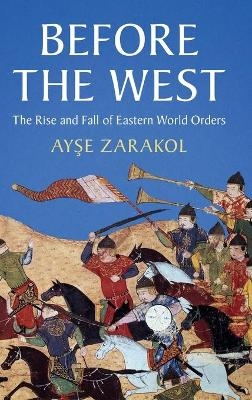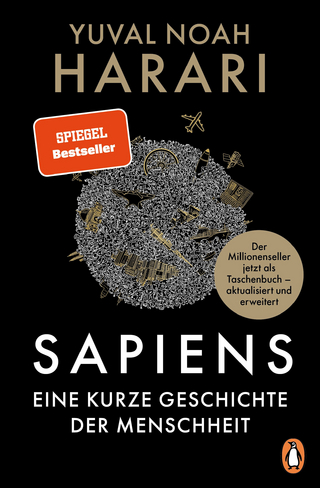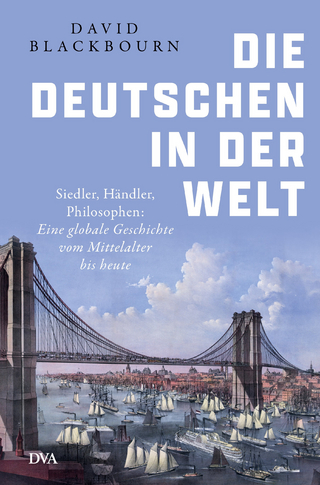
Before the West
The Rise and Fall of Eastern World Orders
Seiten
2022
Cambridge University Press (Verlag)
978-1-108-83860-3 (ISBN)
Cambridge University Press (Verlag)
978-1-108-83860-3 (ISBN)
Before the West presents the first comprehensive account of the international relations in 'the East', weaving together histories of the regions we today call East Asia, Central Asia, Eurasia (Russia), the Middle East and South Asia, and also rethinks the concepts of 'sovereignty', 'international order' and 'decline'.
How would the history of international relations in 'the East' be written if we did not always read the ending – the Rise of the West and the decline of the East – into the past? What if we did not assume that Asia was just a residual category, a variant of 'not-Europe', but saw it as a space of with its own particular history and sociopolitical dynamics, not defined only by encounters with European colonialism? How would our understanding of sovereignty, as well as our theories about the causes of the decline of Great Powers and international orders, change as a result? For the first time, Before the West offers a grand narrative of (Eur)Asia as a space connected by normatively and institutionally overlapping successive world orders originating from the Mongol Empire. It also uses that history to rethink the foundational concepts and debates of international relations, such as order and decline.
How would the history of international relations in 'the East' be written if we did not always read the ending – the Rise of the West and the decline of the East – into the past? What if we did not assume that Asia was just a residual category, a variant of 'not-Europe', but saw it as a space of with its own particular history and sociopolitical dynamics, not defined only by encounters with European colonialism? How would our understanding of sovereignty, as well as our theories about the causes of the decline of Great Powers and international orders, change as a result? For the first time, Before the West offers a grand narrative of (Eur)Asia as a space connected by normatively and institutionally overlapping successive world orders originating from the Mongol Empire. It also uses that history to rethink the foundational concepts and debates of international relations, such as order and decline.
Ayşe Zarakol is a Professor of International Relations at the University of Cambridge and a Fellow at Emmanuel College. She is the author of After Defeat: How the East Learned to Live with the West (Cambridge University Press, 2011) and the editor of the prize-winning Hierarchies in World Politics (Cambridge University Press, 2017).
1. What Is the East?; Part I. Cihannüma: 2. Making the East: Chinggisid World Orders; 3. Dividing the East: Post-Chinggisid World Orders; 4. Expanding the East: Post-Timurid World Orders; 5. How the East made the world: Eurasia and beyond; Part II. Lessons of History: 6. Rise and fall of Eastern World Orders; 7. Uses and abuses of macro-history in international relations.
| Erscheinungsdatum | 23.02.2022 |
|---|---|
| Reihe/Serie | LSE International Studies |
| Zusatzinfo | Worked examples or Exercises; 3 Maps; 4 Line drawings, black and white |
| Verlagsort | Cambridge |
| Sprache | englisch |
| Maße | 158 x 235 mm |
| Gewicht | 610 g |
| Themenwelt | Geisteswissenschaften ► Geschichte ► Allgemeine Geschichte |
| Sozialwissenschaften ► Politik / Verwaltung ► Europäische / Internationale Politik | |
| Sozialwissenschaften ► Soziologie ► Allgemeines / Lexika | |
| ISBN-10 | 1-108-83860-X / 110883860X |
| ISBN-13 | 978-1-108-83860-3 / 9781108838603 |
| Zustand | Neuware |
| Informationen gemäß Produktsicherheitsverordnung (GPSR) | |
| Haben Sie eine Frage zum Produkt? |
Mehr entdecken
aus dem Bereich
aus dem Bereich
Eine wahre Geschichte von Schiffbruch, Mord und Meuterei
Buch | Hardcover (2024)
C.Bertelsmann (Verlag)
25,00 €
Siedler, Händler, Philosophen : eine globale Geschichte vom …
Buch | Hardcover (2024)
DVA (Verlag)
42,00 €


